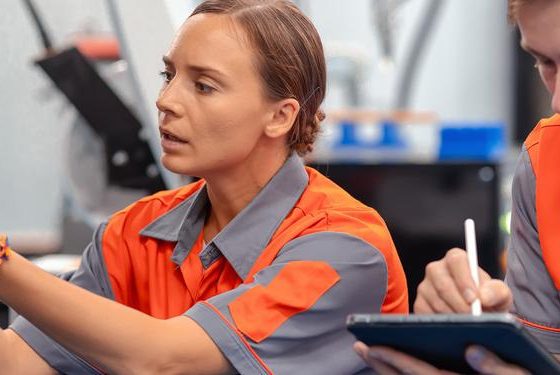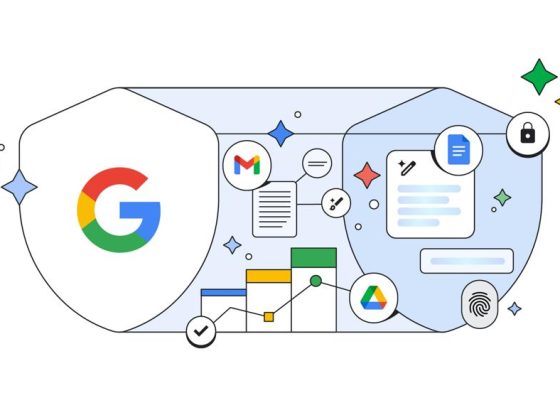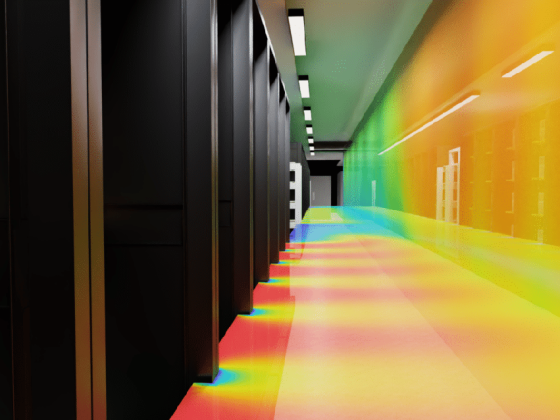Editor’s note: Today’s post is by David Grasty, the Corporate Head of Digital Strategy & Portfolio at Kingston council in Southwest London. The council chose Chrome OS and Acer Chromebooks to accelerate progress on local sustainability goals.
To fight climate change on a global level, we have to start in our home boroughs. Both the Royal Borough of Kingston-upon-Thames and the London Borough of Sutton declared a climate emergency in 2019, so bringing sustainability to every daily activity is critical. We need partners that understand our goal. Since Google has committed to operating its business on carbon-free energy 24/7 by 2030, Chrome OS, Android Enterprise and Acer Chromebooks are the perfect partners.
From our partners:
Committing to sustainability is very important, but it has to be done in a way that doesn’t hinder service to our communities. We’ll adopt low-energy devices and resource-saving productivity apps that help keep employees productive.
The devices we chose had to meet our objective to give employees an “any device, anywhere, anytime” experience. They also had to reduce our carbon footprint within our borough offices—for example, reducing energy consumption and sparing us costly and wasteful IT upgrades. We’ve also made a commitment to close one of our data centers by late 2022, and we knew that shifting to the cloud would play a large part in the sustainability program. Our 5,000 council employees were already using Google Workspace apps, and accessing our borough applications through Citrix Virtual Apps and Desktop.
Sustainability and usability
As my colleague Jason Sam-Fat, the borough’s Digital and IT Commercial Manager, points out, we had to be practical as we studied which devices would contribute to both sustainability and usability. Fortunately, we had the numbers to show the expected sustainability improvements of our top choice, Acer Chromebook Spin 513 with LTE. Our partner Px3 produced detailed findings about the link between the devices’ energy savings.
“We received clear metrics from actual energy usage,” Jason says. “That way, we have a level of assurance and confidence that we can validate our sustainability objectives.”
The Acer CP5-417 Chromebook devices met our sustainability objectives. The latest LTE-enabled Acer Chromebook Spin 513 version that we’ve aligned to further supports our objectives while adding flexibility for employees.
“The Acer Chromebooks are 46 percent more energy efficient than the alternatives in the market,” Jason explains, citing findings from sustainable IT consultancy Px3, which partnered with Kingston and Sutton. “And they have 14 hours of battery life.” That’s something employees really enjoy, since they don’t have to search for electric outlets when they’re in the middle of projects.
The sustainability reporting from Px3 benchmarked a 32 percent reduction in energy with the move to Citrix and Acer Chromebooks—building on previous Px3 research about Chrome OS and energy savings. If you combine this with the resulting reduced levels of commuting by employees, you would need 3,700 acres of mature forest, roughly one and a half times the size of London’s Richmond Park, to remove the equivalent amount of pollution from the atmosphere.
The combination of Citrix and Acer Chromebooks will help us make steady progress toward sustainability for years to come. Our previous devices used a lot more computing power than we needed, given our growing reliance on cloud apps. With Chrome OS devices, we can better take advantage of moving the actual computing tasks to the cloud, which is a less energy-intensive way of working.
Chrome OS inspires future sustainability ideas
We’re pleased that we can make progress toward sustainability goals while we also free up employees to travel around the boroughs as needed, Acer Chromebooks in hand. We gave Chromebooks to people who generally do desk work but like the flexibility to work at home. For employees who meet with residents in the community, Acer Chromebooks also allow them to undertake tasks that they need to do there and then, rather than taking notes and then coming back to an office to update records. All of our staff can access their council systems on their own phones using Android Enterprise with work profiles, which keeps their work data separate from their personal data. With work profiles, our IT team can still manage the work data and keep it secure.
The pandemic brought home the flexibility of our Chromebooks and digital architecture. In March 2020, once the decision was made to switch to remote work, we had 90 percent of employees working from home the next day.
“If we hadn’t had the Chromebooks in place, our remote-work situation would have looked very, very different,” says Steve O’Connor, our Chief Digital Information Officer. “Because we seamlessly moved so many people to remote work literally overnight, it meant that meetings scheduled for the next day still took place.”
As Jason explains, seeing the remote-work experience play out has helped us think about other ways to improve sustainability, such as reducing employee commutes. “Having the right technology, like the Acer Chromebooks, is crucial to our entire journey,” Jason says. “It’s helped us make better decisions around IT, and it will definitely help to define how we can better incorporate sustainability. It’s about continuing to build on what we’ve got, and improving it.”
By: David Grasty (Corporate Head of Digital Strategy & Portfolio, Kingston council, Southwest London)
Source: Google Cloud Blog
For enquiries, product placements, sponsorships, and collaborations, connect with us at [email protected]. We'd love to hear from you!
Our humans need coffee too! Your support is highly appreciated, thank you!








